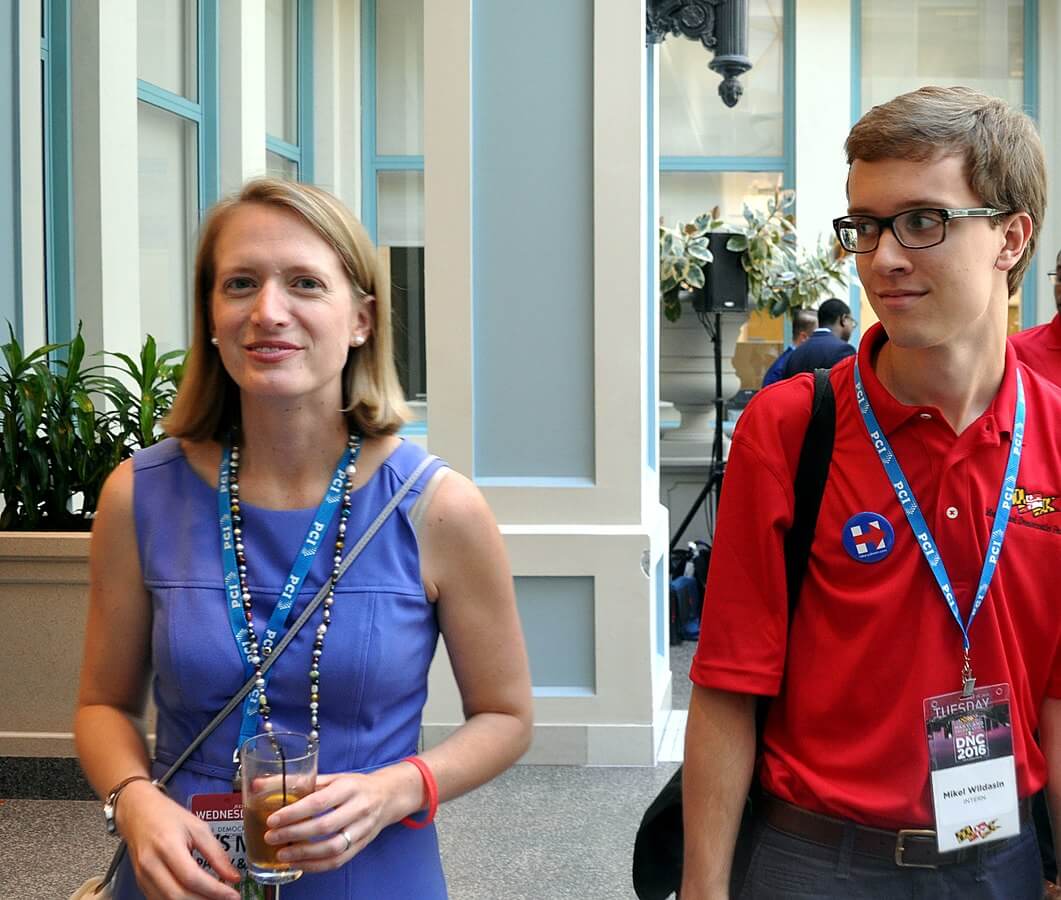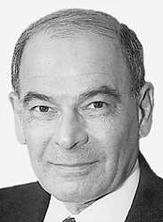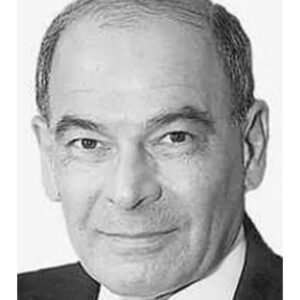
Like father, unlike daughter.
Terry Lierman, as Maryland Democratic Party chairman, invested years rebuilding the party. His daughter has proposed a plan that would undo her father’s work.
Lierman’s daughter, Del. Brooke Lierman (D), of South Baltimore, wants to give the Baltimore City Council the authority to cook election-day books. Translated, legislation she’s sponsored would let the Council decide whether to establish open primaries and “ranked choice” elections in the city.
These are loopy ideas that have their origins in such mellowed-out places as California and Takoma Park, and if the rest of the nation has learned anything it’s to follow the lead of neither of the two. One is increasingly unfit for human habitation and the other has bunkered itself into a nuclear-free stupor. Both fancy themselves as incubators for advanced thinking.
And Baltimore, God love it, is a ramshackle town that H. L. Mencken described as “the ruins of a once great medieval city.”
A little context, if you will. Lierman the Elder was a hugely successful lobbyist from, where else, Montgomery County. He was persuaded to take over the Democratic party leadership in 2004 after it fell victim to Gov. Robert L. Ehrlich Jr. (R) and the disastrous candidacy of Kathleen Kennedy Townsend in 2002.
That election was the beginning of the defection of many rear-guard Democrats to the Republican side of the ballot, not in name but in voting habits. Many have stuck with the born-again move to this day and are allies of Gov. Larry Hogan (R).
Lierman proved to be an effective organizer and peerless fundraiser. He later became chief of staff to U.S. House Majority Leader Steny H. Hoyer (D). Today, he is a freelance entrepreneur.
Comes now his spawn, with a hatful of ideas that are bubbling through the progressive flank of the Democratic Party and have the appearance of new because they’re not thought through to their roots as old. Whether they’re Brooke Lierman’s thoughts, or the proposals were introduced by request, as is often the case, is not clear in a story that first appeared in The Sun. The idea seems to have originated within the City Council, that citadel of incandescent brilliance.
Equally uncertain is whether the state’s Democratic hierarchy would be willing to surrender the certainty of party voting in the city to open-ended elections and other implosive designs.
The changes would have the effect of neutering political parties as hotbeds for competing and contrasting ideas and beliefs. That is what the two major parties in America are all about. A floating, androgynous electorate in a state as diverse as Maryland would erase that competitive environment, though the idea might work in a homogenous state such as, say, Wyoming, with a total population of about a half million.
Open primaries sound downright democratic – small d – and have more to do with the purity of the process than actual outcomes. Their intention is to encourage greater participation in elections. If that’s the case, the gesture has more to do with the growing number of disgruntled independents than with the few Republicans left in the city.
The latest available registration figures show that there are 257,394 registered Democrats in Baltimore, 30,584 Republicans, 33,888 independents (unaffiliated) and 1,941 other (Green, Libertarian, etc.).
As a matter of historical note, Baltimore’s tiny Republican Party tried opening its primary election to all voters years ago as an attempt to bulk up its numbers, but the experiment failed and the welcoming invitation was abandoned.

Frank A. DeFilippo
But – and in politics there’s always a but – primary elections are strictly family affairs. They argue within the parties like a large family at Sunday dinner, sort out the differences on election day and hope to pick candidates who’ll bring home the pork chop in November.
Open primaries would allow outsiders who’ve rejected the parties – and this is especially so of independents – to stick their noses into party business in which they have no involvement or interest other than rejecting or defeating it. So why, for crying out loud, allow a Trump Republican to vote in an Obama Democratic Party’s primary election?
Unaffiliated votes often complain about being locked out of the primary election process. And well they should be. They choose to be on the outside looking in by refusing to identify with a political party in what is essentially a majority two-party system. There are other ways to blow off steam at errant politicians.
Open primaries would also open elections to mischief that hasn’t been seen since the disappearance of the dinosaurs such as political boss Jack Pollack and the muldoons who dominated city politics until the arrival of television. For example, voters could change party affiliation at will and flit back and forth to influence outcomes from primary to general elections.
Ranked choice elections, and their variations, are supposed to prevent candidates from winning with less than a majority of votes. They have approached disaster in Maine, the only state to adopt the controversial system, and a cumbersome system in the several California cities that have instituted the ranking system. (Ranked choice voting is also under considering in the Montgomery County legislative delegation; Takoma Park uses the system in municipal elections now.)
Ranked choice elections delay returns as well as results while election board math whizzes tinker with algorithms to chase the elusive 50.1 percent and in some elections have failed to reach the magic qualifying number. In Baltimore, often as few as 20 percent of the voters control 100 percent of the vote. That dismal performance probably won’t change with ranked choice, though the margin of victory theoretically would. Who would we be kidding but ourselves?
Essentially, ranked choice elections are the new politics plugged into the old. They institutionalize the old political machine trickery of “single-shooting” that is a common behind-the-curtain practice of political insiders but is little-known to the general public.
Here’s how it works: Let’s say there are six candidates running for five judgeships on the ballot and a voter prefers one over the other five. Instead of voting for five of the six, the voter casts a single vote for their preferred candidate, thus giving their candidate a vote and the others none. That single vote has a multiplier effect of five in the electoral advantage. Single-shooting was how political machine entrenched itself for decades.
And so it goes with ranked voting. Voters rank candidates according to preference. And in tallying the votes, candidates are eliminated from the bottom up until one at the top achieves a fraction more than 50 percent of the vote for a simple majority. Name recognition and incumbency would dominate the ballot.
All of this mishegas is supposedly conceived to attract more voters to the polls and to provide more transparency in elections. In the case of ranked voting, a 20 percent turnout will suddenly appear to be 51 percent, and in cross-party elections more voters will participate if independents are allowed to vote in primaries.
Much of which indicates that the trees, as usual, are cluttering the view of the forest. Has anyone recently asked the simple question, what’s so sacrosanct about holding elections on Tuesdays? By now it might have occurred that the success of early voting on every other day of the week should have begged that question.
Tuesday, as election day, is a fixation, as much as anything, that was established by Congress in 1845 when America was an agrarian nation and travel was mainly by horse and buggy. Between 1788 and 1845, states chose their own voting dates, which created a jig-saw process among the electors – white, male property owners. So it was decided that the young country needed a uniform day of voting – even though only a select few could vote.
Monday was ruled out because that would have required travel on the Sabbath, which was unthinkable in those Biblically puritanical days. Wednesday, similarly, was scratched because it was market day for farmers. So it was finally decided in 1845 that elections would be held on the Tuesday after the first Monday in November.
But that applied only to general elections. Primary election dates are generally decided by the parties and the states. And today, primary elections are scattered all over the calendar, with the chase to be first assuming more importance than the actual results, and in many cases to cluster state elections for maximum exposure and effect. Nonetheless, they are still held mainly on Tuesdays.
America is no longer a nation of farmers, and we travel in turbocharged cars as well as by bus and rail and these days even by scooter. Early voting in Maryland has shown that weekends attract more voters than weekdays as a matter of time and convenience.
So if greater participation is the goal of legislation, how about considering changing the day to suit the times instead of changing the entire electoral system to motivate a few folks who have no use for politics to begin with.




 Creative Commons Attribution
Creative Commons Attribution